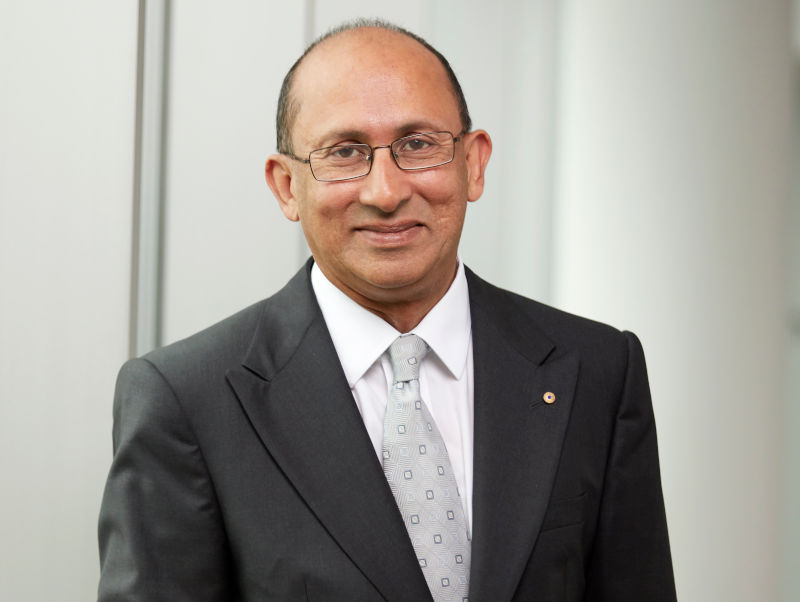Marching blindfolded into the new Cold War
January 8, 2025
Just before Christmas, the Albanese Government released the findings of a report into how much funding the federal government contributes to those institutions around the country that research and report on the contemporary challenges facing Australian strategic policy.
This is a significant report with important consequences for Australia’s global engagement. But it has not received the attention it deserves.
Led by former Department of Foreign Affairs & Trade secretary Peter Varghese, the report presents options on how to make those grants to think tanks more competitive, and what the government’s future role would be in shaping how these institutions focus on matters critical to Australia’s international security environment.
[Photo of Peter Varghese above courtesy of University of Queensland]
Varghese wants governments to seek contestability earlier in the making of policy and more often. And his report makes it clear that “governments must accept the [think tank] sector will present some at times uncomfortable and at times even unhelpful contributions, but debate is both healthy and necessary”.
Even before release, however, Canberra folklore had decided that the report was expressly designed to give Labor cover to close down the Australian Strategic Policy Institute.
ASPI was created by the Howard Government in 2001 to provide contestable advice on Australian defence policy. But it has since strayed a considerable distance from that charter.
Since 2017, ASPI has gained a prominence all its own, owing primarily to its reporting on Australian China policy. Indeed, it worked hand in glove with the Morrison Government on how to play China as an issue in Australian domestic politics.
In that era, some political leaders, officials and commentators depicted Australia as the “tip of the spear” in calling out and confronting an assertive China. ASPI saw itself as the ideological font of that policy and some of its analysts created an atmosphere in which to question government policy settings on China was deemed unpatriotic.
It now chafes at the Albanese/Wong policy of “stabilising” relations with Beijing, virtually decreeing it to be the equivalent of appeasement.
Varghese has already rebutted claims that his report was a “get ASPI” exercise.
“The idea that a think tank should be shut down because the government does not like its views is a dangerous one,” he wrote in the News Corporation press, “and contrary to the value of policy contestability in a liberal democracy.”
Juvenile response
Nevertheless, ASPI’s current director, Justin Bassi, a former adviser to previous Coalition governments, equated the 14 recommendations of Varghese’s report to the “14 grievances” issued by an officer in the Chinese embassy in 2020.
One of those “grievances” was a demand that the government close ASPI. The list was a ham-fisted Chinese exercise, but it remains talismanic for China hawks. Bassi’s comparison is not only reprehensible, but juvenile.
Varghese’s review brought to the fore a range of critical issues.
One is that those voices of restraint in Australian think tanks on China, as opposed to ASPI’s hairy-chested approach, do not attract any significant, direct government funding. Nor do those questioning American staying power.
Varghese noted to this author that part of the answer here is that “ASPI is seen as in the advocacy more than the research space as a think tank, and the public perception is that it is quite ideological in its approach”.
Another is why the Australian foreign and defence policy community remain so closed to outside advice. Varghese identifies two key elements here.
“I don’t think the policymaking community in the national security space seeks out different analysis and perspectives: there is a view that an outside perspective could never know everything the government knows, so the conclusions are limited in their value.”
And as intelligence plays a bigger role in the making of policy, he adds, “that view has become stronger”.
This is in sharp contrast, he points out, to the greater openness on economic and social policy, where Treasury, for example, is more open to advice from the Grattan Institute, for example.
Varghese’s bigger worry is that a system closed to outside advice compounds the challenges it already faces in coming to grips with deep policy work in areas where the external strategic environment is shifting sharply.
“The value of think tanks,” he adds, “would usually be recognised where the policy community is wrestling with deep issues.”
Varghese accepts there is risk in his recommendation that the government provide think tanks with priorities each year to help shape applications for funding. He recognises that it could become manipulated by a government seeking to hear only what it wants to hear.
But he has more faith in the integrity of the public service, namely that “in setting priorities they would be focusing on the big policy questions that the system is wrestling with and where it would be good to gain an external perspective”.
The report also reveals the gaps in coverage of the Australian think tank community: a heavy focus on the US alliance means that serious thinking on China, Japan, Indonesia, India and Korea is in short supply.
Varghese noted the “systemic failure” in terms of Australian China expertise in particular.
As Professor Mark Wang, president of the Chinese Studies Association of Australia, recently remarked: “Even during the Cold War, the opposing superpowers did not stop funding research on each other. Without knowledge about China, there will be a higher risk for policymakers to make stupid or risky decisions.”
If that failure is not redressed, Australia may as well march headlong into the new Cold War blindfolded.
First published in the Australian Financial Review on 5 January 2025

